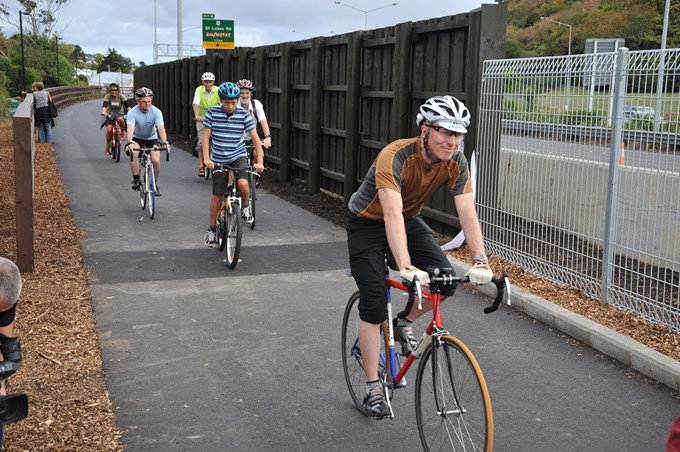Mayor Len Brown says the government position that there will be no early progress on agricultural emissions in the wake of the global climate agreement in Paris puts the onus firmly on transport and energy, and that’s where Auckland as a city can - and will - take action.
“When it comes to climate change, cities are where it’s at. We have the tools and the opportunities to make a practical difference to our shared climate future,” says the mayor.
“Of the nearly 11 million tonnes of CO2 emissions in Auckland in 2013, 3.8 million came from road transport. That’s 35 per cent and the single largest emissions source, so anything we can do to give people alternatives to their car is going to help.
“As a united Auckland, we have an unprecedented opportunity to respond rapidly and strategically to effect the kinds of changes we need to ensure this city’s future. That’s why we have set a target of reducing our emissions by 40 per cent by the year 2040 (relative to a 1990 baseline). The introduction of our new electric trains alone reduced emissions by one per cent.”
Target of 1.5 degrees
The mayor is now fine-tuning the action Auckland will take in the wake of the Paris Agreement to limit global warming to well below two degrees Celsius, with the intent to pursue a 1.5-degree target.
The agreement recognises cities as essential in fast-tracking transformative action in the urban world. The actions of cities could make up a third of the shortfall between the Paris agreement’s ambitions and country commitments. That’s 3.7 gigatons of urban greenhouse gas emissions by 2030.
The mayor was part of the official New Zealand Government delegation to the 21st Conference of the Parties to the United Nations Framework Convention on Climate Change (COP21). He travelled at the invitation of the United Nations Secretary-General’s Special Envoy for Cities and Climate Change, Michael Bloomberg and the Mayor of Paris, Anne Hidalgo.
Focus on transport and zero waste
Among the initiatives the mayor says Auckland is already implementing – but which require more effort in the wake of the Paris Agreement – are the continued transformation of Auckland’s transport system, with the focus on public transport and cycle and pedestrian walkways, and leading by example with council procurement, building and infrastructure design. The retrofit of Auckland Council’s headquarters building has reduced energy consumption by 40 per cent and saved $535,000 per year.
“We are also moving toward becoming a Zero Waste city by rolling out separate organic waste collection and community-led resource recovery networks, so we are walking the talk.”
The mayor says his invitation to attend and speak at the Paris conference, as well as his inclusion in the official delegation, was recognition of Auckland’s position as one of the world’s most liveable cities.
“And while the Auckland story is a good one, it was not just about telling it,” he says. “It was about learning from best practice examples from around the world in areas such as urban regeneration, sustainable transport, energy efficiency and conservation and hot transport trends. We learnt from other cities facing similar challenges, enhancing Auckland’s ability to benefit from their expertise, tools and programmes in the future.”


